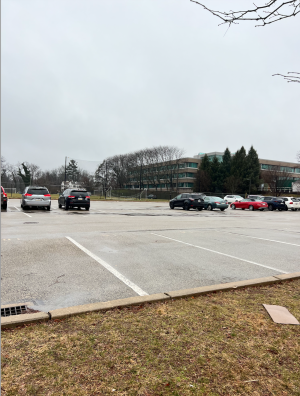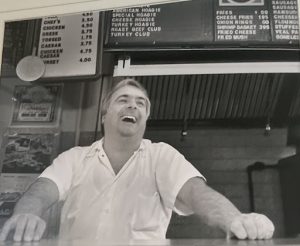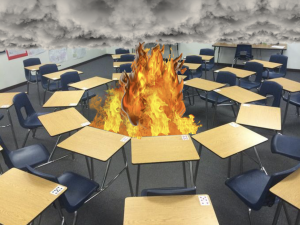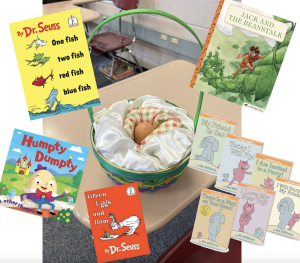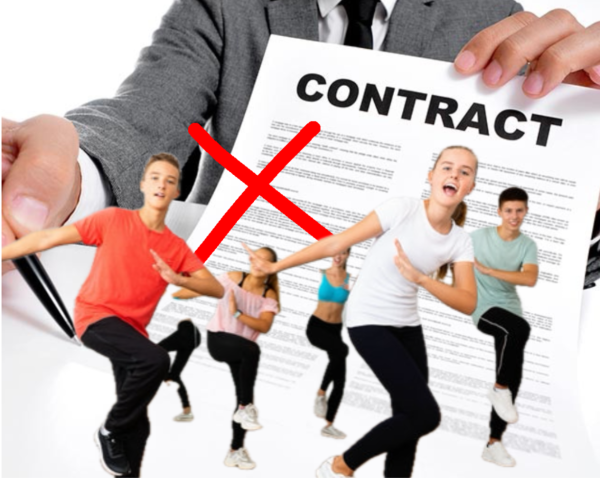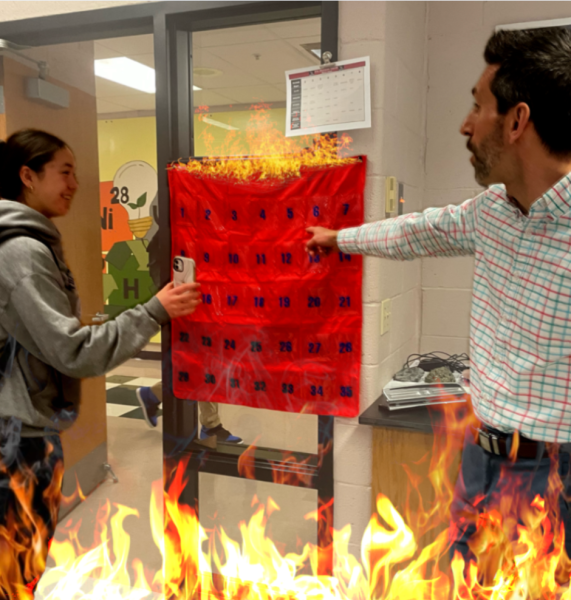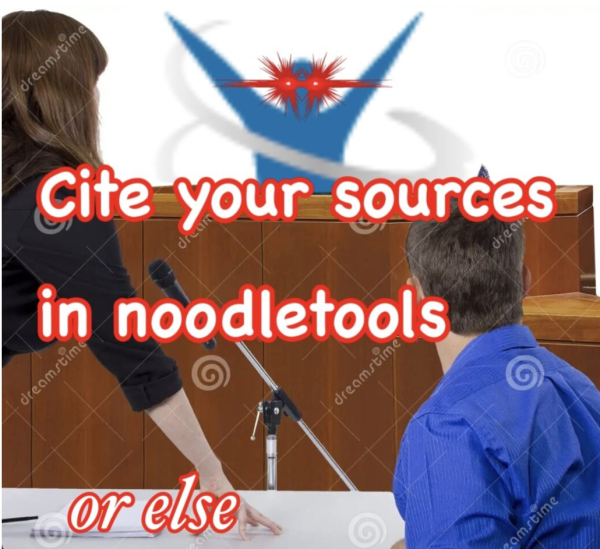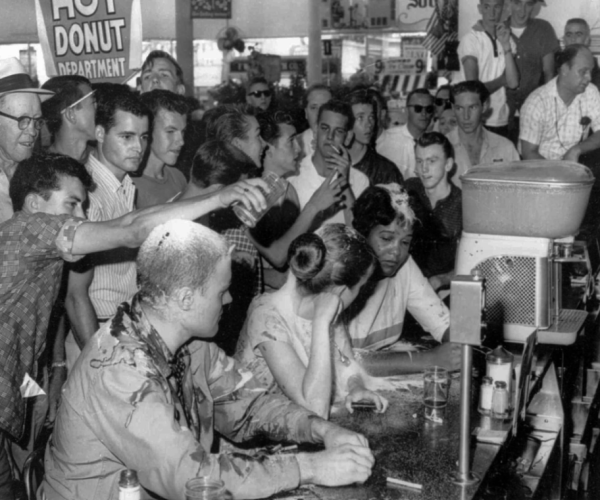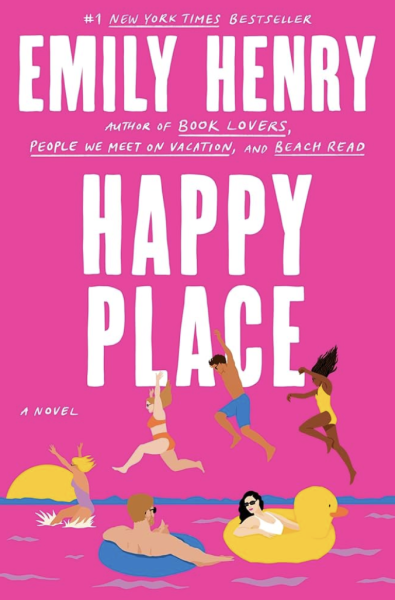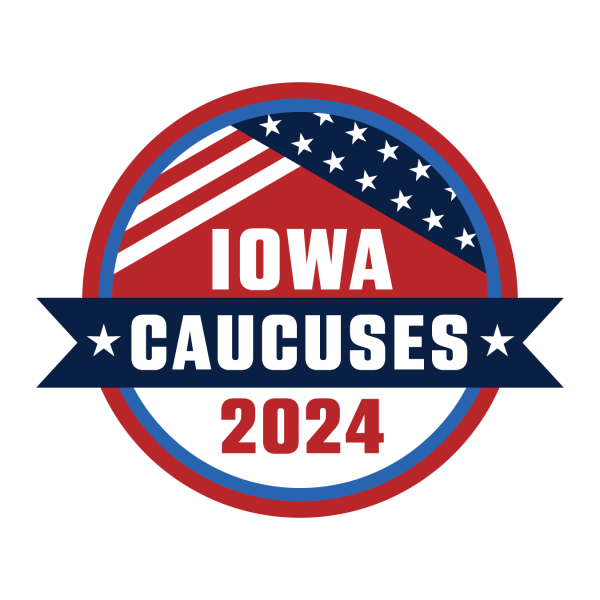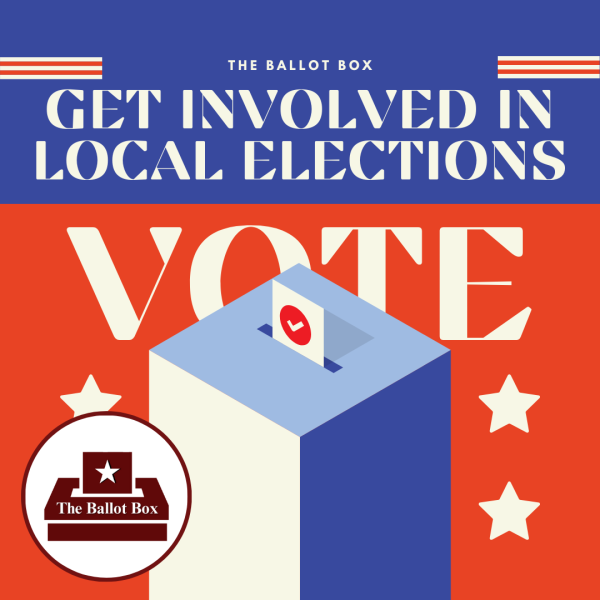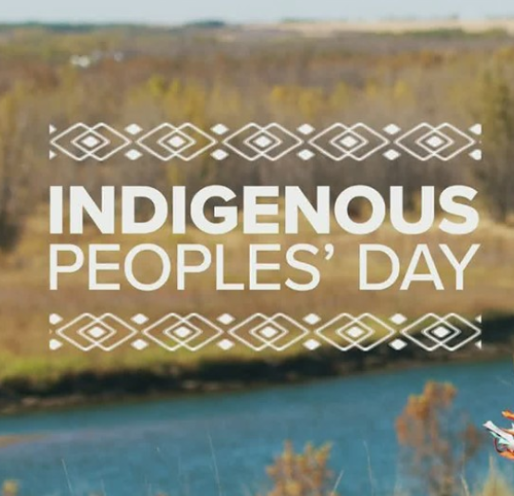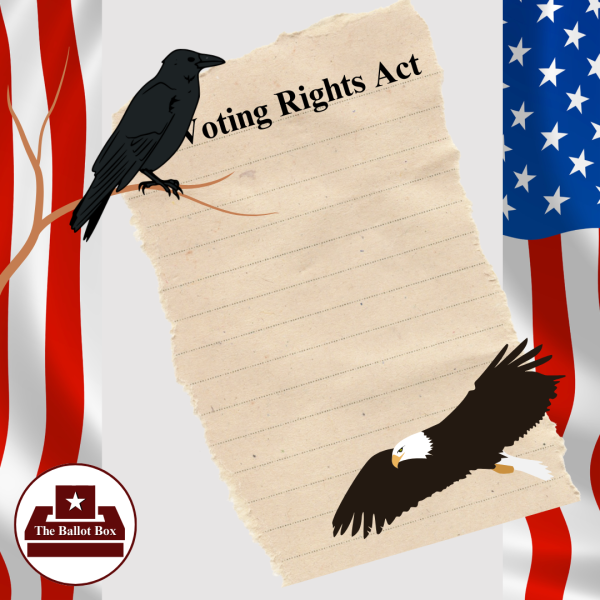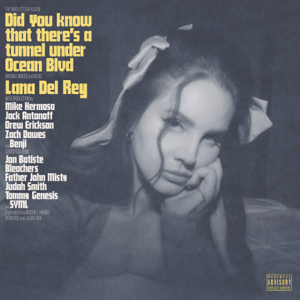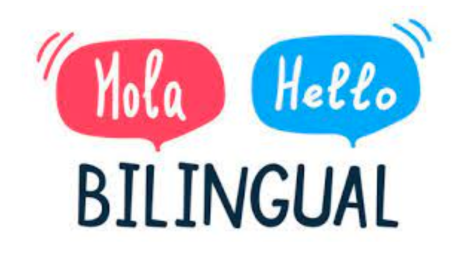Trump’s America through the Lens of 1984
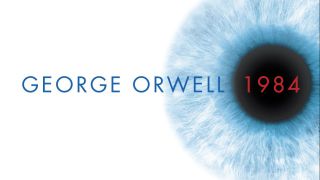
April 26, 2017
1984, the dystopian future novel by George Orwell that soared to the top of the national bestseller list during the week after President Trump’s inauguration, is for obvious reasons disconcerting. The novel depicts the people of Oceania, one of three world powers, living in an era of oppression and lies. The people are submissive and reliant on a government run by an omnipotent Big Brother. Big Brother and his workers change the past, in order to maintain total control over the present and the future. Anyone with doubt in her mind about the righteousness of Big Brother’s party is killed and taken off the records.
What’s even more concerning than the novel itself is that many people have been observing similarities between Big Brother and President Trump. There are some obvious connections, like the blatant lies–aka alternative facts–he tells the public, and his defensive nature when questioned. However, I believe that the parallels between the two leaders have deeper roots.
All throughout the novel readers are in fear of this dystopian future, because Orwell’s writing brings his world alive. The one consoling thing about 1984 is the absurdity of the ‘slogans’ the people live by. The reader thinks that if this is what these people believe then a future of this sort simply isn’t possible. These four phrases hold heavy words, possessing the dominant issues in society. The pairs are dictionary opposites:
“War is Peace”
“Freedom is Slavery”
“Ignorance is Strength”
“2+2=5”
These are things that are so undeniably false. They are paradoxical statements, otherwise known as ‘doublethinks’, and they are terrifying. Big Brother has such a strong grip on the population that he is able to instill into the minds of the people not just a belief that these statements are true, but an utmost devotion to live by them. His wants and wishes control the civilian’s reality. It is with these doublethinks that many people would stop trying to make connections between our current president president, Donald J. Trump, and this twisted, intriguing novel. However, under closer observation Trump’s values might be further misplaced on our acceptable spectrum than we think.
If there’s one thing most Americans can agree on, regardless of political party, it’s that causing unnecessary harm onto others is wrong. War ruptures countries, but in 1984 Big Brother believes “War is Peace.” Worryingly, Donald Trump has portrayed a similarly near enthusiastic approach to the use of nuclear weapons. But it’s fine, because according to himself, “there’s nobody bigger or better at the military.” In fact, he was heard murmuring “I love war” at a rally at Iowa Central College. He has no issue with publicly announcing that he doesn’t want to “take [those] cards off the table” when it comes to using nuclear weapons. Bear in mind, this was a question about bombing European countries. The way he uses his command of the country’s nuclear weaponry is highly troubling, he says on bombing ISIS “at a minimum, I want them to think maybe we would use it, OK?”. Although letting everyone know that you will fight for the country against a dangerous enemy is a good thing, a situation in which the threat of nuclear war is the only thing maintaining relative peace is never a good one. If this is Trump’s ‘minimum’, what is his maximum?
Everyone in the world shares a desire for freedom, which is why the phrase “Freedom is Slavery” is baffling to any common folk. It’s also the phrase with the least similarities to the belief of the POTUS, but there’s still something in it. For now I’m going to say that in this sense ‘slavery’ can mean restricted freedoms. Now, Donald Trump has said in his usual language, “I love the first amendment – nobody loves it more than me,” but we all know at this point that Trump has some serious issues with the press. He’s gone as far as removing serious newspapers from his press briefings. He has called the press “the enemy of the American people,” he somehow believes that this ban is to the benefit of the public. It’s as if he is trying to “liberate” us from this “fake news”. This would be fine if he had dismissed obviously false reporters, but this is not the case. He has labeled historically credible newspapers such as the New York Times, NBC, ABC, CBS, and CNN as the “fake news media”. Donald Trump clearly wants people to be less informed of his numerous falters and slip-ups. Do you feel freer now?
One of the most powerful motifs Big Brother rules his people under is “Ignorance is Strength.” Big Brother maintains this public ignorance by feeding them lies, a method otherwise known as Trump’s entire campaign tactic, which seems to have continued on into his time in office. The thing about the lies that Trump tells is that a worryingly vast majority of his supporters believe him. They have faith in his word, even when it has been proven wrong time and time again. It doesn’t seem to matter the extent of the ridiculousness in some of Trump’s statements, which are more like random thoughts that probably shouldn’t be said out loud, but nevertheless there will always be someone who will believe and encourage him. He made false promises during his campaign on topics such as healthcare. In fact, he said “people are going to be able to go out and negotiate great plans with lots of different competition with lots of competitors with great companies and they can have their doctors, they can have plans, they can have everything.” Everything is a lot to promise, and unfortunately, Donald is now realizing he can’t deliver. He remarked that “nobody knew that health care could be so complicated!” Trump won on the ignorance and blind trust of his voters, their acceptance of his vague ideas. It’s as if they would be fine be ruled by Big Brother, if they don’t mind the things Trump says. Our ignorance is his strength.
The last and most universally disputable doublethink, “2+2=5.” This one shouldn’t even be given a second glance, but I’m going to anyways. On the day of Trump’s inauguration, the media took to mocking Trump’s crowd size by comparing it with photos of Obama’s inauguration taken half an hour apart from each other. The crowd size at the Obama inauguration was undeniably much bigger, yet Sean Spicer, Trump’s press secretary, spent a solid amount of time at his first unofficial press conference debating the post. He said of Trump’s crowd that “this was the largest audience to ever witness an inauguration — period”. He justified this by saying that more people rode the metro that day, but later the Washington Metropolitan Area Transit Authority released a statement saying that in 2009 at the Obama administration, 513,000 people rode the metro at 11 AM, compared to Trump’s 193,000 at the same time. While estimating crowd size is very difficult, professionals have agreed that Trump’s crowd was about a third of the size of Obama’s. Trump cannot allow numbers to speak for themselves, and that is troubling. He believes he cannot be wrong, and anyone who thinks so has to be wrong. This is troublingly similar to the way that Big Brother rules over Oceania in 1984.
Trump alone used to be harmless, after all, anyone is allowed to say whatever they like. Then he ran for president. Then he was elected. The scary thing about Trump is that he is capable of making people believe him, which is the exact reason the people of Oceania in Orwell’s novel are forever enslaved. Donald Trump lives by impossible truths, and is now attempting to govern by them too.

